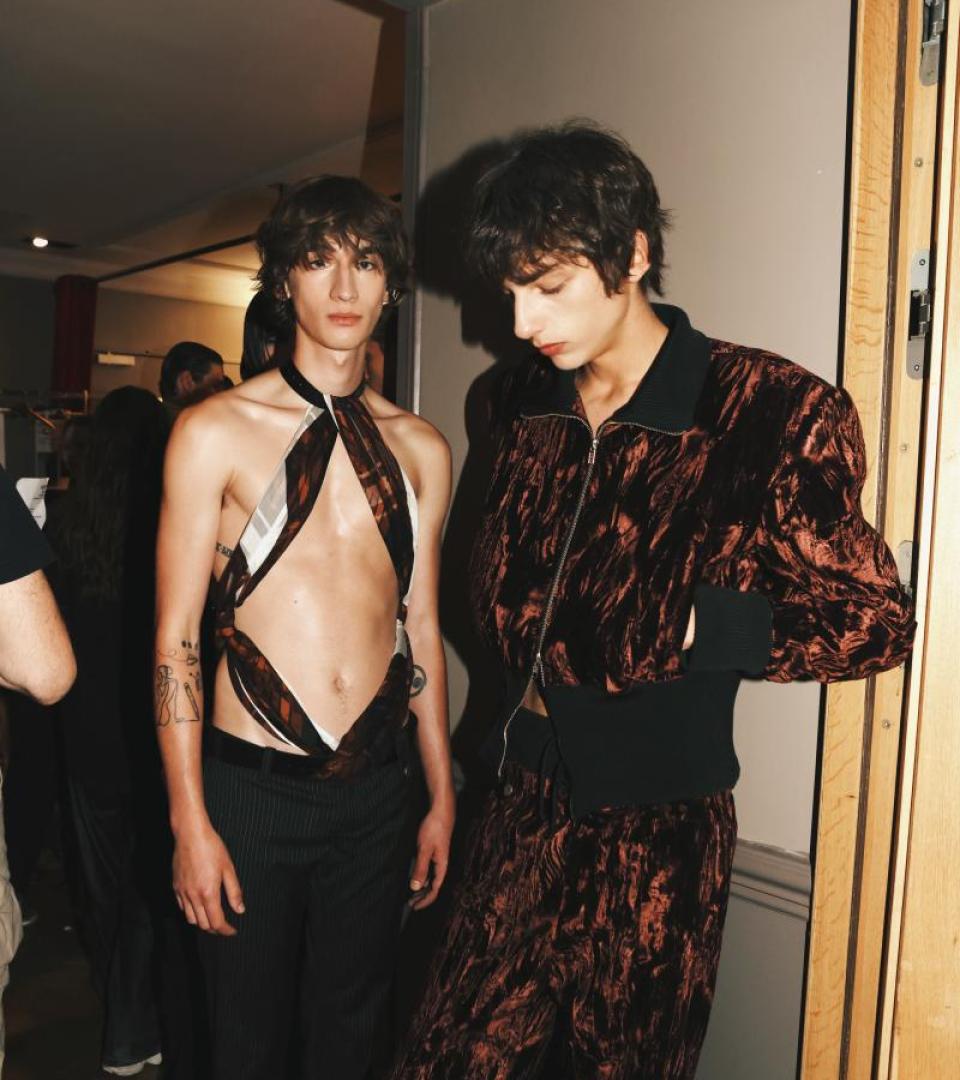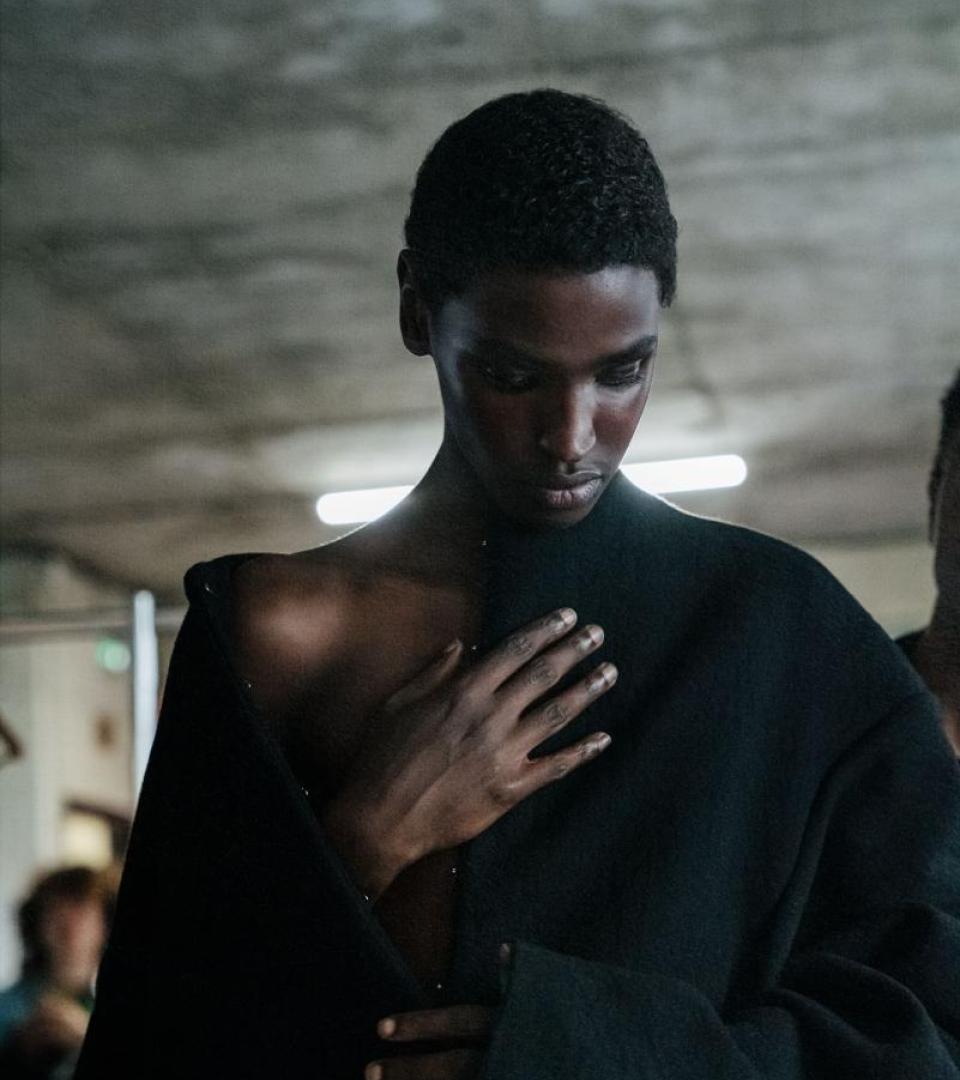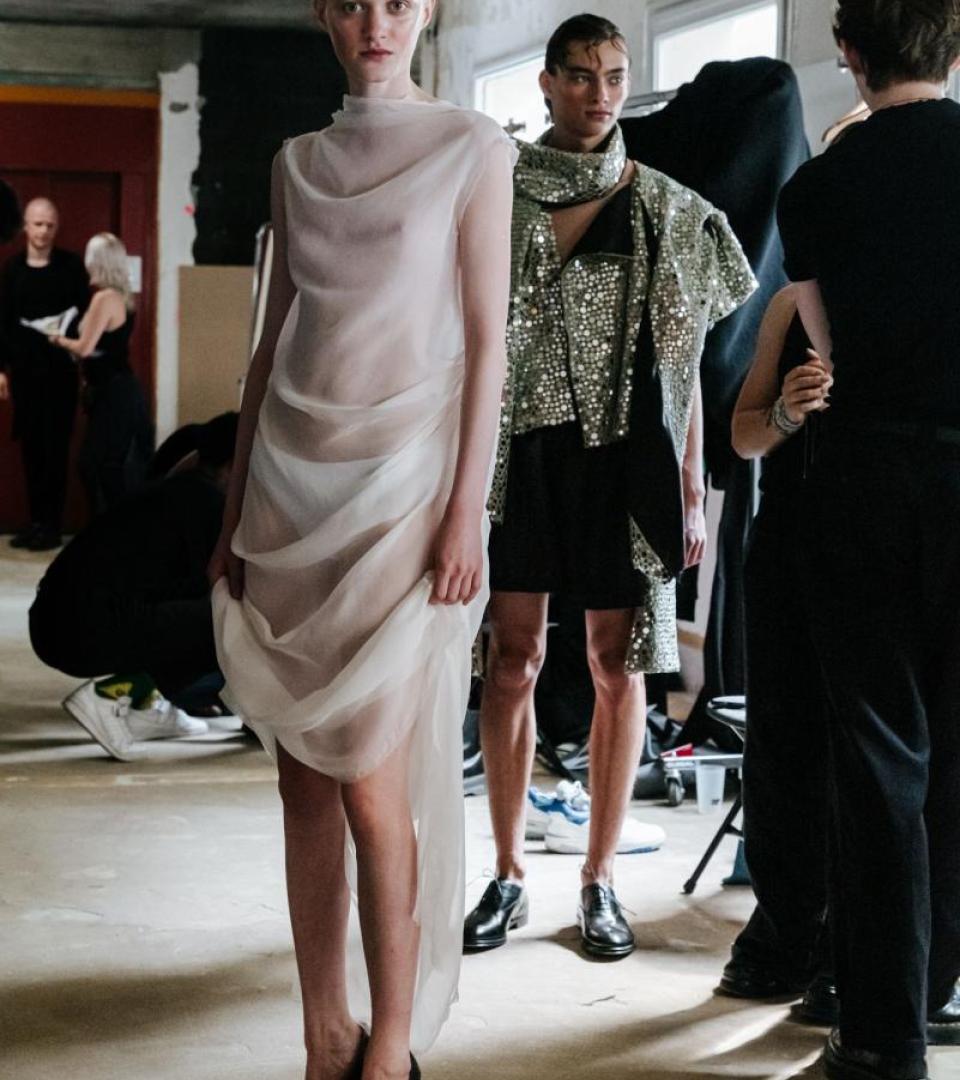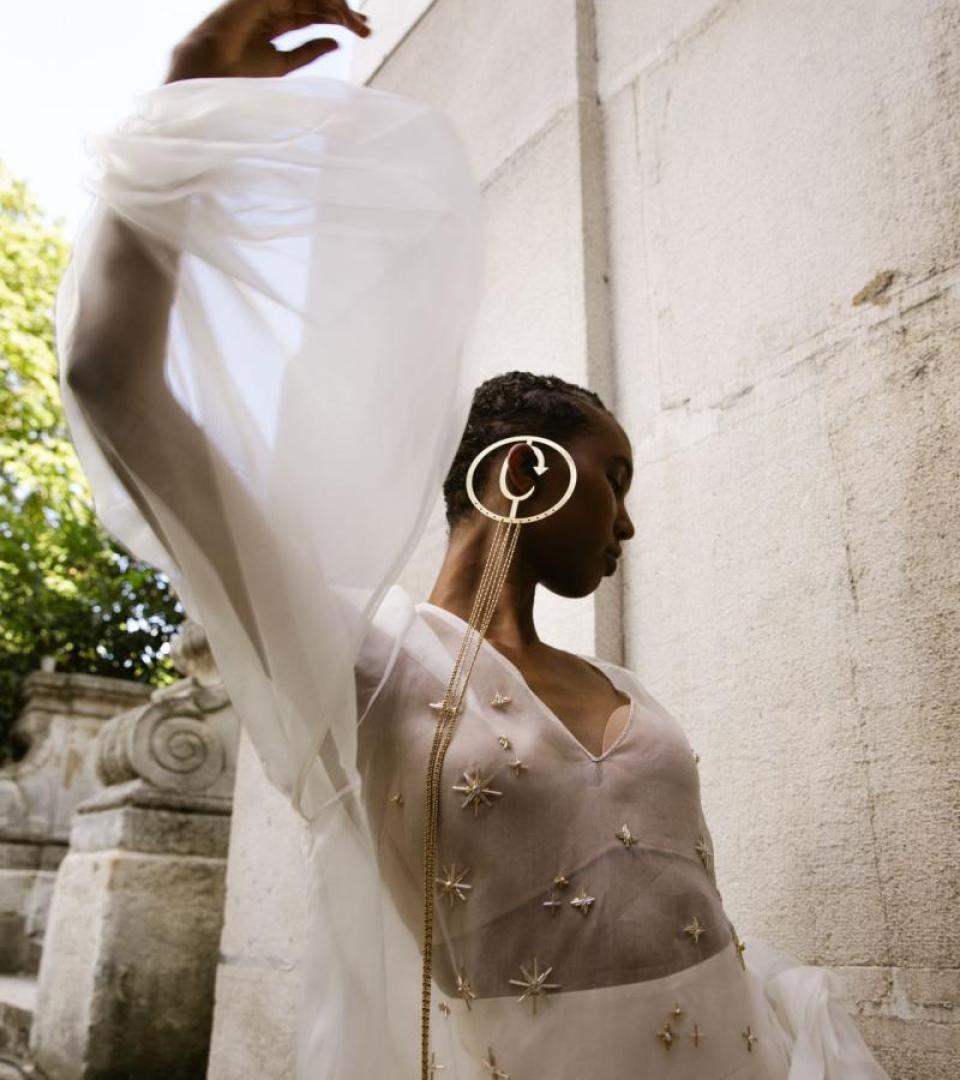An Outlook on Future by Craig Green

Craig Green loves to challenge forms, arriving at unexpected silhouettes halfway between portable architectures and functional clothes. Right after his graduation at the Fashion Masters course at Central Saint Martins in 2012, the London-based designer launched his namesake brand, which quickly became a worldwide success.
How do you define future?
It’s kind of a scary question in some ways, as I’m not really sure there’s one thing that defines the future. But I think that in the field we’re working, there’s always constant thinking about it in some way. We’re working so far ahead in seasons, we’re almost constantly thinking about it even if we don’t realise it — even though it’s only 6 months.
Can you be a designer without thinking about the future?
Although a lot of my work doesn’t really have a political message, I do still think that you can’t help being influenced by what’s happening around you at that moment. Saying that, I’ve always thought it’s a designer’s job to push things forward and try to create something new.
What does the future’s aesthetic look like, to you?
I think what’s really exciting about the future is that you don’t really know; it’s unknown. Then, thinking about it, it reminds me of what I’ve learnt back in design school. When I was training, I was always told if you can draw something it usually means you’ve maybe seen it before, and you have to physically make it something new. I think I feel always uncomfortable; but I think feeling uncomfortable is the best way to work.
How did 2020 change your outlook for the future?
I have a feeling that everything changed this year in some way, or affected everyone in some way. But I look back and think about it as a positive thing, leading to an opportunity which you don’t really get back — trying to think more about what you’re doing. I’ve spent a lot of time on my own in the studio and I was loving it in the beginning. It was like I was working on canvas making things myself. It wasn’t normal usually, I felt like I was back in my BA or MA course and I was physically making clothes. In some way I reconnected to clothing. It was a rare opportunity. You have to see some positive in it. So yes, I do think it changed me.
Why is the future such an important element of fashion?
I think the job of a designer is to push things forward, and come up with new things, and question everything. It’s linked to the world of fashion but it’s exciting; there’s a lot to know. Yes, I think the future is where everyone is heading in some way — something to look towards. You always have to be respectful of the past, as everything has started from something. But a designer has to push forward and making suggestions. That’s why it’s so important in fashion.
What is one thing we can start doing now that could positively impact our future?
At the moment, what is really important is art education. It seems like everything has changed since when I was a student —like education fees are a lot higher and it’s a big issue in the UK at the moment. It separates people that have money and people who don’t, so I think it would be really important is to have more funding for education for people to have the opportunity to explore art and create a path and follow it. At the moment, I think it’s quite a big risk for people to take and maybe it’s not the easiest choice to make. The creative subject is something really important; I wouldn’t have gone down the path if I were studying today. So I’d like that to happen, it would be positive for everyone.
What excites you about the future?
I was actually talking earlier to a friend about it: I traveled recently to Milan for Moncler, and to travel again was a very nice experience. Before 2020, I was traveling a lot and I think I really missed that. I got very excited to travel again and I’m kind of excited to going back to doing the shows. I know that everyone is talking about maybe waiting on doing things, but I think it’s really exciting and it would be amazing to be back. We can never really replace people being together in a room.
What about fashion will remain constant: what is permanent across past, present, and future?
I’ve always believed that restrictions are really important to create problem solving, to overcome challenges. I’ve always believed it in that way. What I love about fashion is that you’re always restricted to the human body and it doesn’t matter how extreme or approachable you go within the work, you always have to think about it. I like to think of it as the constant in fashion. We always have innovation to work around.
This interview has been lightly edited for clarity.



